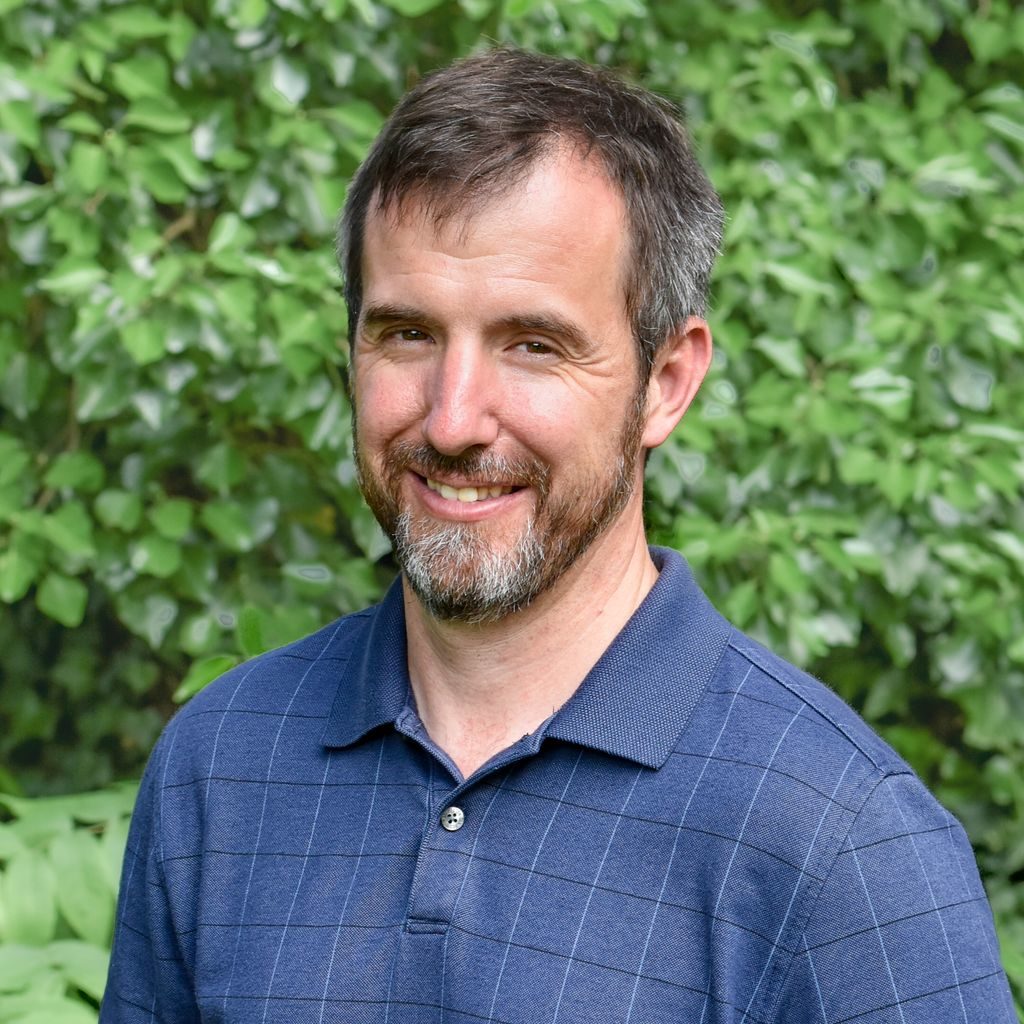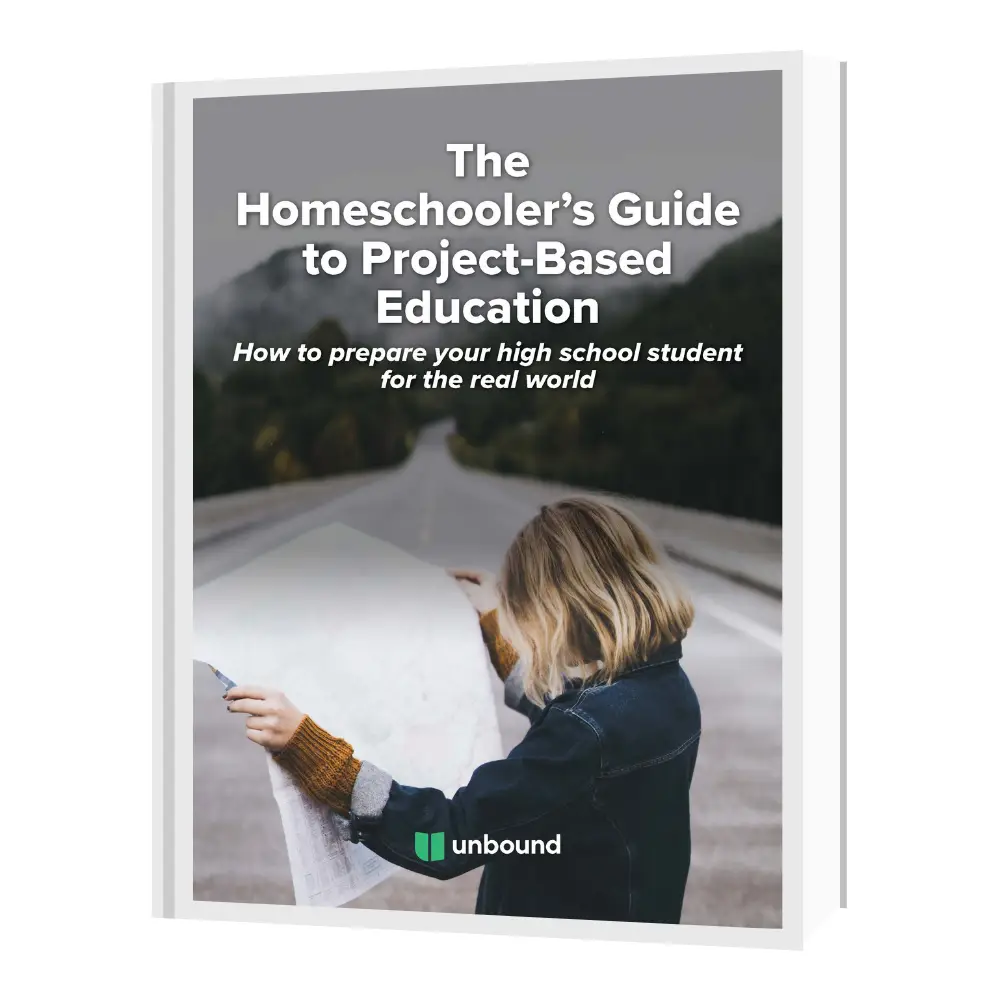How to A.D.U.L.T: Ask

Prefer audio? Click below to listen!
Editor’s Note: This article, the first in a series about Unbound’s A.D.U.L.T educational model, was first published on Medium.com.
Unbound’s mission is to equip students with elite skills for living life in the real world. More specifically, we’re talking about the world that exists now, which is fundamentally different from the world that existed even twenty years ago. We live in a constantly changing world; a world where technology regularly disrupts every part of our lives. To live in this kind of world requires a different kind of education.
Recognizing this fact, Unbound uses an educational framework called A.D.U.L.T., which stands for Ask, Do, Understand, Live and Thrive. In this article series I will break down each of these ideas to help you understand how we equip students to live in the world today.
Ask
The knowledge that we need to be successful in our world has fundamentally changed.
I don’t say this lightly. Like you, I am skeptical of anyone who tries to tell me that they have something to say that will change everything forever. That being said, when I explain what I mean I am confident you will agree with my bold assertion.
The future of education in your inbox.
Get productivity tips, commentary, and Unbound updates sent to you!
The kind of knowledge that we used to need was built upon answers. To be a knowledgeable person meant that you knew a lot of information. The more knowledgeable you were, the more valuable you were to a company because gaining and storing new information was expensive and time-consuming.
For example, when I was in high school (which doesn’t seem like a very long time ago), if I needed to learn new information it would cost me time and money. I would need to get in my car, drive to the library, go to the card catalog, sort through the card catalog and find the subject that I was looking for, pull the card for that book, find the book in the library stacks, turn to the index or the table of contents, and then read and research about whatever it was that I was trying to learn about. Once I knew the answer, I would then have to either memorize that answer or find some way to store it in an index card catalog or file system. If I forgot the information, I would have to repeat the entire process all over again.
For businesses or organizations. storing large amounts of information was both difficult and expensive. In 1956, within living memory, a megabyte of data storage cost $85,000 in today’s dollars.¹
Today, everything has changed. We carry technological devices in our pocket that enable us to access almost the entirety of the world’s information in fractions of a second. A megabyte of data storage costs less than $0.002.²
We live in this world, and yet we rarely stop and think about what a fundamental change this represents when it comes to practical information and the application of that information in our day-to-day lives.
In the past, information came at a measurable cost. For a business or organization, that meant that the more people that you had on your team who had more answers in their head, the better competitive advantage you had over others. Knowing answers was the core of what it meant to be educated. It was a professional advantage. Theoretically, a college degree indicated that the person holding that degree had more answers in their head; therefore, a college education represented significant value to an organization or business.
The world is fundamentally different today. Information is instantly available at almost no cost. That has at least three major implications for how we prepare young people for success.
We Live in a Dynamic World
Change has been constant for all of human experience and throughout all of history. That being said, there is no doubt that the pace of change has dramatically increased in our lifetimes. One of the practical implications of this reality is that final answers aren’t really final.
Now don’t get me wrong. To be clear, I am making this argument in the context of practical information and the use of that information in our day to day lives. I’m not making a metaphysical argument about truth.
What I am saying is that in the past, things stayed the same longer. Because of this, a “final” answer or solution usually had a longer shelf life. All that is different in today’s world. What worked yesterday may not work tomorrow. What worked last week is not as likely to work next week, and what worked six months ago almost certainly will not work six months from now. This reality completely upends the historic hierarchy and professional norms of almost every business and organization.
This is an important point to understand because our entire educational system is still based on knowing static answers. Traditional education teaches students that if you take the right courses, get the right grades, score the right scores on the right standardized test, and ultimately get the right degree, then that will prove that you know all the answers. And that proof will allow you to be successful in the “real world.”
Reality is totally different. The real world is increasingly dynamic, and change happens constantly. In most fields, spending four years in college means you will have spent four years learning answers that are no longer relevant. When you graduate, you will be four years behind what is actually happening in your workplace.
A Questions-Based Paradigm
Being educated used to mean knowing all the answers. Today, the critical skill is knowing how to ask the right questions. Our world has shifted from a primarily answers-based paradigm to a questions-based paradigm.
In the world of today, knowing all of the answers is not a significant advantage. Answers are available almost instantly. Instead, the critical skill is being able to find, sort, and test all of those answers.
Being able to access enormous amounts of information brings new challenges. How do you find the specific information you need when you have instant access to all the information in the world? When you do find information, you will likely find a nearly endless quantity of data. How do you sort through that enormity to find the precise information you need for your problem? Our technology allows equally fast access to correct and incorrect information. How do you test the information accessed to determine if it is correct?
Knowing the answers to these questions isn’t about having more head-knowledge. Answering these questions first requires knowing how to ask good questions.
QEMCI
Because we live in a dynamic world where knowledge is defined by a questions-based paradigm, we need to think differently about what is most important when it comes to academics. The critical academic skill isn’t good grades, the right major, or the best degree from the “right” school. The critical academic skill is QEMCI.
QEMCI stands for the ability to Quickly and Effectively Master Complicated Information. In other words, the critical academic skill that is most important for today’s world is simply the ability to learn. People who are able to learn (and learn quickly) are the people who will be successful, no matter what industry and job they are working in. It’s not about knowing. It’s about finding. It’s not about having all of the answers (which will quickly become outdated), it’s about being able to ask the right questions that will enable you to find the new answers that you need.
Here’s the reality. Technology causes disruption. Disruption causes problems. Problems need to be solved. The faster the problem can be solved, the bigger the advantage for a business or organization. Thus, QEMCI.
Let’s break it down. Quickly, because speed matters. Effectively, meaning to practically understand what information is necessary to solve your current problem. Master, because knowing something better than everybody else gives you and your organization significant advantages. Complicated, because simple is easy and anybody can do it. Information, because you need new information to solve your new problems.
One final and very important note. Don’t get confused. Unbound is an unabashedly Christian organization. And I am no relativist.
I am not arguing that there is no such thing as Truth. I am not saying that there is no right and wrong, or no important answers that we need to know. In fact, I am saying exactly the opposite. I am arguing passionately that the most important thing that we can do is to search for Truth.
We ask questions to search for Truth. Better questions equals better answers. Better answers means a better understanding of Truth. And each answer should put us in a place to ask a better question. This reality about asking questions comes from a Christian worldview.
We follow an infinite God. An infinite God by definition is a God whom we will never fully understand. That means that each time we learn some new truth about God, we have a better answer. Additionally, we will be in a place to ask a better question, which will allow us to learn even more about the truth of who God is. In fact, Scripture tells us that we will spend all of eternity in God’s presence, continuing to learn more about Him and who He is. That means that there are a lot of questions ahead, so we should practice asking good ones now.
In Unbound’s educational framework (ADULT), Ask means understanding the reality that the knowledge we need to be successful in our world has fundamentally changed. Instead of knowing lots of answers, we need to know how to ask good questions. In a dynamic, rapidly changing world, the critical academic skill is the ability to learn (QEMCI).
To become a fully independent adult prepared to face the challenges of today’s world, you must start with Ask.
¹https://thebahnsengroup.com/the-dc-today/monday-dec-5-2022/
²Ibid

Jonathan Brush is the President and CEO of Unbound, a homeschool graduate, and a homeschool dad of six. He worked for nine years as a Director of Admissions for a private, liberal arts college, and then spent over ten years working in non-traditional higher education.
Jonathan loves Unbound and Unbound students and dreams every single day about new ways to connect them to each other. He gets to work with the world’s best team and the most amazing student body in the history of the world (which is just as awesome as it sounds), and field questions about Rule 4 violations (ask an Unbound student to explain). Jonathan and his family make their home in the Shenandoah Valley of Virginia.



